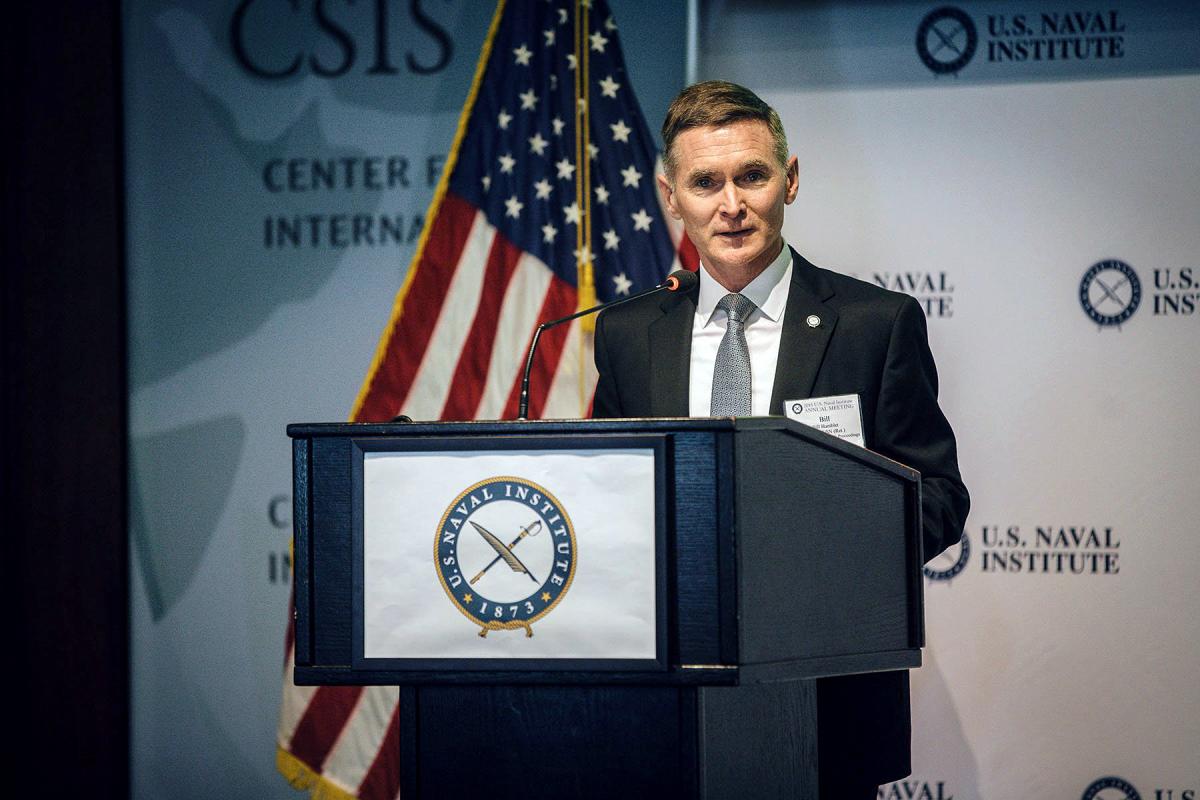The year 2019 has gone by quickly, and it has been a banner year for our open forum. Your membership in the Naval Institute and your readership of Proceedings, Naval History, and the Naval Institute Blog propelled us to another record-breaking year of online page views—each saw 50 percent or higher growth from 2018. Thanks to you, we have grown the open forum and expanded its impact.
The December Proceedings is usually one without a specific theme—it is not focused mainly on the Marine Corps, aviation, or surface warfare, for example. Yet it is always interesting to see a theme emerge in the issues that are not predetermined around one. This month the central idea turned out to be “orienting toward the high-end fight.” Starting with retired Fleet Master Chief Paul Kingsbury’s “Position the Chiefs’ Mess for the High End Fight,” through Captain Ernest Snowden’s “Know Your Adversary,” all the way to Petty Officer Ian McCoy’s, “Boxing Can Boost the Navy’s Fighting Spirit,” this month’s authors have put together a compelling call to prepare for high-end warfare.
Two articles from the 2019 CNO Naval History Essay Contest (sponsored by General Dynamics) are “must reads.” The first is Lieutenant Commander Jeff Vandenengel’s “Fighting along a Knife Edge in the Falklands” (pp. 62–67), which took first prize in the rising historian category. It takes its name from the description Royal Navy Admiral Sandy Woodward gave to the 1982 Falkland Islands’ War. This essay perfectly answered the contest’s challenge: analyze a chapter from naval history and apply its lessons forward. Vandenengel garners keen insights from the Royal Navy and Marines’ extreme away game in the South Atlantic and applies them to challenges the U.S. Navy would face in a future war in the South China Sea. Longtime Proceedings contributor Frank Hoffman’s runner-up essay “‘Silent Victory’ Won Earlier” (pp. 68–72) is a counterfactual analysis that asks, What if the U.S. Navy had known about its torpedo problems before World War II—and fixed them? Hoffman ponders the problems the Navy or the Marine Corps have today that, if solved now, could change the outcome of a future war with a peer competitor. What if the Department of the Navy thought hard and fixed those problems, bought the right weapons, systems, and platforms, and trained to use them decisively now? Is that not what readiness is made of? Would that not deter the nation’s adversaries?
I predict a major theme in these pages in 2020 will be naval integration. Marine Commandant General David Berger set the tone by writing in last month’s issue, “The Navy and Marine Corps together will need to fight for sea control.” In the post–Cold War era, sea control was taken for granted by the United States. Not anymore.
Finally, December always brings the deadline for the General Prize Essay Contest. The most prestigious and oldest Naval Institute essay contest, with a top prize of $6,000, dates back to 1879. The deadline is 31 December, and details for the contest are found on page 1. Writing an essay to make the Sea Services better is a great way to close out 2019 and prepare for a New Year in which we all dare to “read, think, speak, and write.”





